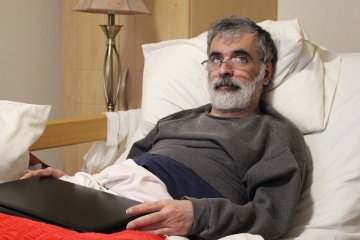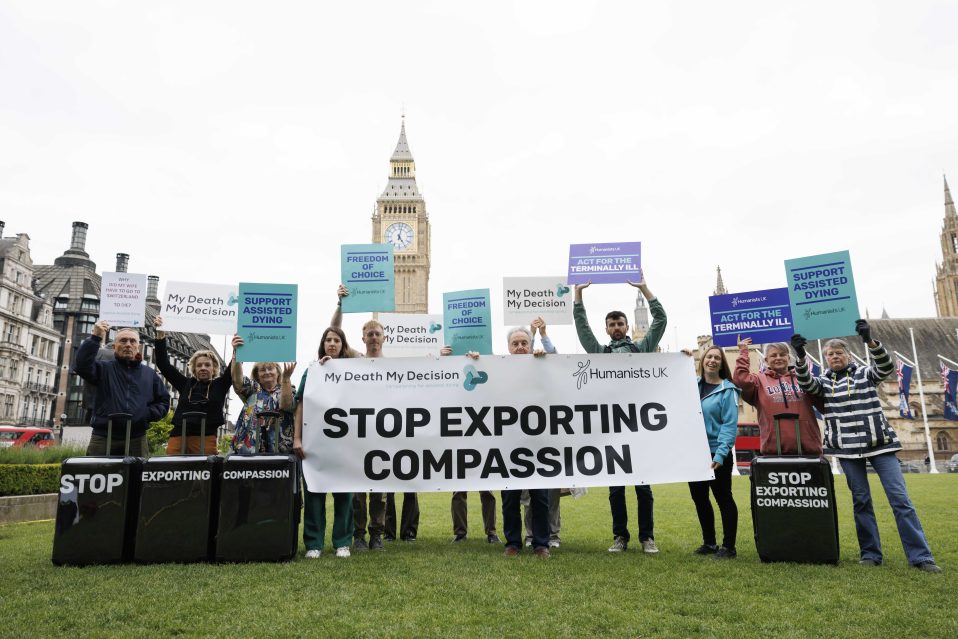An excellent report ‘The True Cost – How the UK Outsources Death to Dignitas‘ was recently published by Dignity in Dying, discussing the many difficulties associated with UK citizens choosing to end their lives in Switzerland. (Despite it’s title, the report also considers other Swiss organisations prepared to offer medical assistance to die to foreign nationals, such as Lifecircle.) The underlying research was carried out by Bronwyn Parry, Professor of Global Health and Social Medicine at King’s College London and her Research Associate Sally Eales.
In the report’s foreword, MP Kit Malthouse, (who chairs the Choice at the End of Life All-Party Parliamentary Group), says “Our outdated laws discriminate between rich and poor, discourage proper conversations between patients and their doctors, criminalise grieving relatives who spend time with their loved ones in their dying moments and oblige people to end their lives before they are ready. Worst of all, while they are predicated on preserving the sanctity of life, they show no mercy to those facing an agonising death, and deny free will to those whose lives and deaths depend upon it. One day we will look back in disbelief at how long it took Parliament to realise this.” The report gives substance to these points through analysis of the current situation and using quotes from many interviews with those who have been involved in the process.
The report goes into admirable depth in many related issues, including:
- The confusion and inconsistency over the medical approach to requests for discussion about assisted death or requests for required documents. This is something also covered in a recent article by Dr Paul Teed who is currently carrying out research in this area at Bristol University. (If you have personal experience and would be willing to take part in this research you can contact Paul anonymously through his website.)
- The complexity of the process of arranging an assisted death in Switzerland. The process can take many months. MDMD understand from Dignitas that the process can take 3 or 4 months. Some people leave it too late to get started… to the point that by the time they have the “green light” to go, they are too ill to travel. In a response to a follow up question from MDMD, Dr Erika Preisig of Lifecircle told us that 8% of applications are not progressed because the applicant is no longer able to travel.
- People are ending their lives too soon, due to the need to be able to travel to Switzerland. Dr Preisig told MDMD that she estimated that 40% of the people who end their lives at Lifecircle choose to do so sooner than they might, if they had the option of a medically assisted death at home, due to fear of no longer being able to travel.
- Why even the best available palliative care is not always sufficient.
- The alternatives some people feel forced to consider: refusing treatment and suicide.
- The cost – typically around £10,000. This figure should, however, be viewed in the context of some other costs:
a) It includes cremation costs which could cost around £3,000 in the UK
b) Anyone having to pay for their own residential nursing care will typically be paying around £1,000 per week.
c) Dignitas are sometimes able to reduce or waive their fees for those who do not have sufficient financial means.
This important and hard-hitting report makes an overwhelming case for changing the UK law. Until that happens there are no good alternatives for some people. The clear conclusions for anyone contemplating “going to Switzerland” are to: apply early; expect bureaucratic difficulties; and, regretfully, plan to go before you would ideally choose, while you are still able to travel. MDMD recommend reading the report in full and thank those who contributed to its production.










Recent Comments